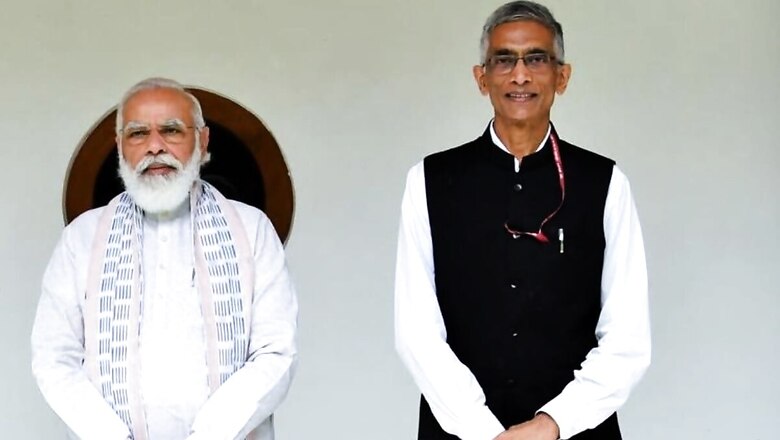
views
A study published in the prestigious international science journal Nature has “conclusively proven the immense health benefits” that came out of the Swachh Bharat Mission, Parameswaran Iyer, former Secretary and the man who led the Mission from 2016 to 2020, told News18 in an exclusive interview.
“Prime Minister Narendra Modi was not only the brain behind the Mission but also our communicator-in-chief… It was a programme led by the PM, overseen by the PM, and I think the results speak for themselves,” Iyer told News18 from the US where he serves as Executive Director, World Bank for India, Bangladesh, Bhutan and Sri Lanka. Iyer, a former IAS officer, was brought from the World Bank by the Modi government in 2016 to lead the Swachh Bharat Mission.
According to a new study published in the prestigious international science journal, Swachh Bharat Mission may have saved lives of 60,000-70,000 children every year in India. The study analysed the falling child and infant mortality rates since 2014 when the Mission was launched. Iyer had led the Mission for five years.
“I fully agree with the results of this study, in terms of significant reduction in infant and child mortality due to Swachh Bharat Mission. We always knew that provision of toilets and access to sanitation had significant health impacts apart from economic impacts and the dignity and security of women. But this study in a peer-reviewed journal brings out very rigorously the health impacts. That is a huge number of lives saved,” Iyer told News18.
He said that when the programme started, the government intuitively knew, and there was some evidence, which showed that access to safe sanitation decreases infant mortality.
“There was a direct connection of lack of sanitation and lack of water with increase in diarrhoea deaths, and most vulnerable were children and infants below five years. This study has conclusively proven it. We knew that access to sanitation would help reduce childhood stunting,” Iyer said.
PM’s Vision, Says Iyer
PM Modi was the first and only world leader who put sanitation and reducing open defecation very firmly on the national development agenda, Iyer said. “It was a programme led by PM, overseen by the PM, and I think the results speak for themselves,” Iyer told News18. He recalled August 15, 2014, when Modi made the “dramatic announcement” from Red Fort and said “everyone was taken aback that PM of India is talking about toilets and open defecation in his Independence Day speech”.
“It was an inflection point in India’s journey in eradicating open defecation… apart from the announcement, PM followed through on the implementation. It was a bold announcement. You can see the results today,” Iyer said.
He said Modi missed no opportunity to address the nation on this issue, including in Mann Ki Baat, when he would cite examples of ordinary people turning this programme into a ‘Jan Andolan’. “It was his inspirational leadership that went down to the chief minister and DMs; the PM, CM, DM as we say in UP cadre which was the magic formula. Unquestioningly, PM’s eye for communication and impact was the key,” Iyer said.
He cited how the PM termed a toilet as an “izzat ghar” — a symbol of women’s dignity. “He oversaw the programme in great detail. He explained how the country would benefit, he galvanised the entire council of ministers, the apparatus and most importantly, he repeatedly emphasised that it was to be a ‘Jan Andolan’, not a ‘sarkari’ exercise. How it needed to go to villages and communities, who should own the programme, taking out Gaurav Yatras when particular villages became open-defecation free — all this was his brainchild,” Iyer told News18.
Other Benefits
Iyer said there were multiple spin-off benefits of Swachh Bharat Mission. “One benefit was economic, which we learnt through a study done by UNICEF. It said that in every open defecation-free village, each individual household could save Rs 50,000 a year on account of avoided medical fees and the time saved,” he said.
However, according to Iyer, the health benefit has been one of the most significant ones.
“We did the ABC — align with the PM’s big vision, build belief amongst ourselves that it could be done, and communicate. In a federal system, cooperation of states was key as they aligned with the PM’s vision. Young DMs took charge and there was a sense of excitement,” he added.













Comments
0 comment